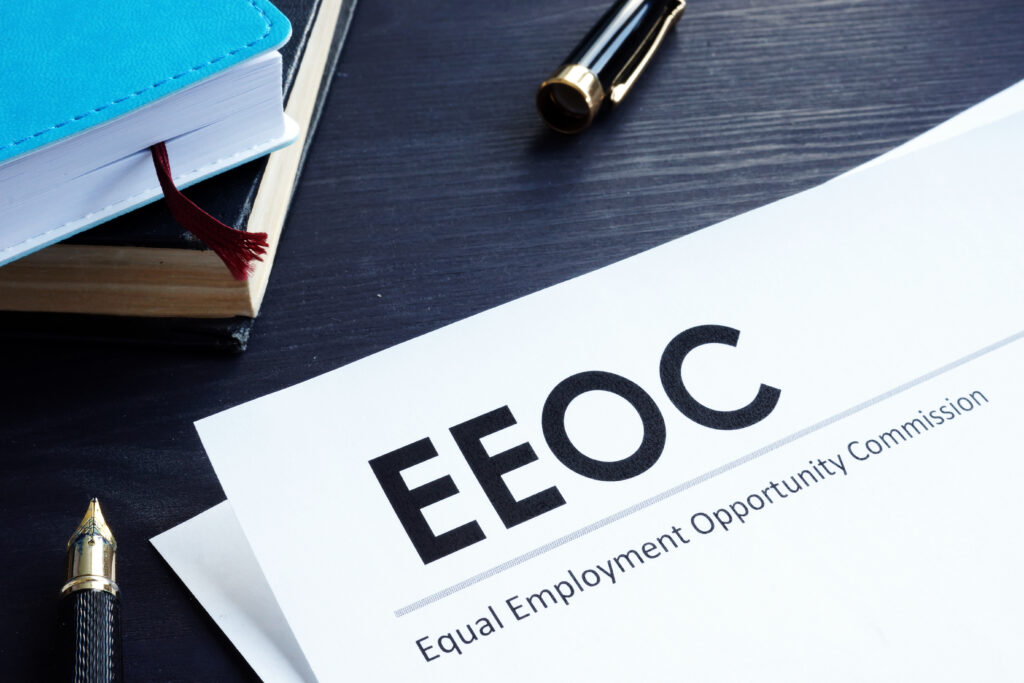A Better Balance is committed to strengthening enforcement of current laws, so that the most marginalized workers are able to meaningfully access their rights. As part of that work, we recently submitted comments to the U.S. Equal Employment Opportunity Commission (EEOC) recommending priorities for the EEOC’s upcoming Strategic Enforcement Plan, which will establish areas of focus for the agency’s enforcement and policy work over the next four years. The EEOC enforces federal laws that prohibit discrimination in employment, including Title VII of the Civil Rights Act of 1964 and the Americans with Disabilities Act, among others. As such, the EEOC plays a vital role in combatting discrimination against pregnant workers, caregivers, and workers with disabilities.
Our comment encouraged the EEOC to prioritize:
- Fighting discrimination against caregivers. In the wake of the pandemic, caregivers continue to face high rates of discrimination as they struggle to care for loved ones and remain economically secure. As the agency charged with enforcing our federal workplace civil rights, we encouraged the EEOC to prioritize combatting discrimination against caregivers by updating its 2007 guidance on unlawful disparate treatment of workers with caregiving responsibilities, as well as the companion Q&A and Best Practices documents, to provide more timely guidance to workers and employers.
- Ending discriminatory absence control policies. In our 2020 report, Misled and Misinformed: How Some U.S. Companies Use “No Fault” Attendance Policies to Trample on Workers’ Rights, A Better Balance demonstrated how some of the nation’s largest companies maintain policies that mislead workers into falsely believing that they lack any right to reasonable accommodations and job-protected time off, and then penalize workers for legally-protected absences. We called upon the EEOC to engage in robust enforcement against employers who knowingly maintain discriminatory absence control policies, and also to capitalize on its relationships with employers and their representatives to conduct robust outreach and education informing employers of the significant risks of these policies and how to implement them in a manner compliant with federal anti-discrimination law.
- Enforcing protections for pregnant and postpartum workers. We expressed appreciation for the EEOC’s focus on combatting pregnancy discrimination over the past few years and called on the agency to continue actively seeking opportunities – through guidance, enforcement, and amicus submissions – to prioritize supporting pregnant and postpartum workers. In addition, we recommended that the EEOC fast-track time-sensitive pregnancy and lactation accommodation claims to help ensure that pregnant and breastfeeding workers are able to stay in the workforce and ensure their families’ economic security.
- Avoiding discriminatory technology. In light of the ever-increasing availability of commercial products that use artificial intelligence (AI) to support human resources tasks, we encouraged the EEOC to expand the scope and detail of its guidance to employers on how to avoid the discriminatory use of this technology. We noted how AI-based tools that screen job candidates and monitor worker productivity can discriminate against pregnant and breastfeeding workers, as well as workers with disabilities, thereby creating liability for employers and punishing workers. As such, we called on the EEOC to conduct enforcement in this area, as well as disseminate guidance and trainings to help demystify this technology and empower workers to push back against its improper use.








